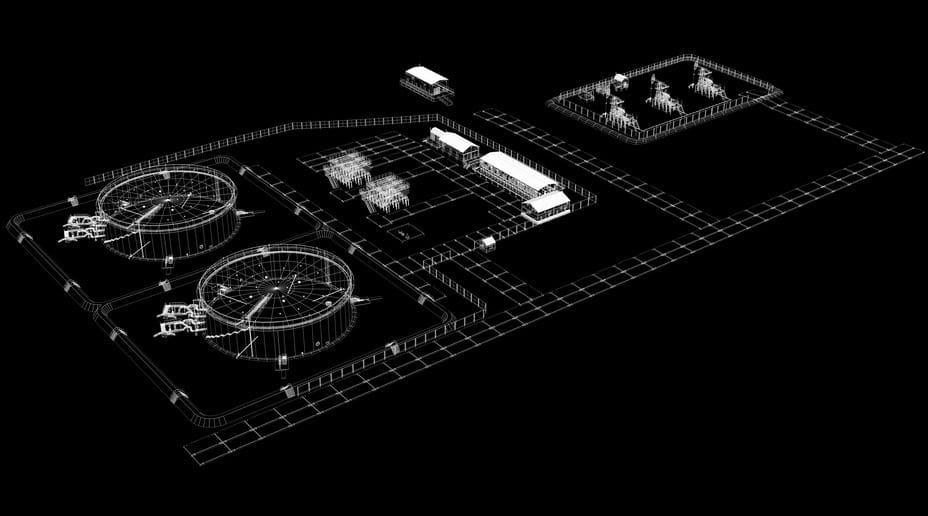The digital oilfield concept in the oil and gas industry deals with the application of digital oilfield technologies to processes and workflows in order to maximize productivity, reduce costs, and minimize risks.
The adoption of digital oilfield technology allows oil and gas companies to create a ‘digital twin’ that replicates the performance of an oilfield on a computer. Several multi-national companies, including BP, Shell, Chevron and Equinor, have emerged as leaders in enabling harnessing the digital oilfield, according to GlobalData, a leading data and analytics company.
The company’s latest report, ‘Digital Oilfield – Thematic Research’, notes that the adoption of digital oilfields has gained impetus in the last 15 years due to technological advancements in sensors, robotics, automation and control systems, as well as wireless networks.
The leading companies and service providers to adopt digital oilfield technologies of the digital oilfield concept, according to GlobalData, are:
BP
British oil major BP has conducted studies across its production sites worldwide to maximize productivity with the application of digital oilfields. It is collaborating with technology providers for advancing the development of software solutions of the digital oilfield.
Royal Dutch Shell
Anglo-Dutch firm Shell has tested digital oilfield technologies for the past several years. The company has seen an increase in productivity and recovery rate, while reducing the downtime.
Shell is also leveraging the technologies and data analytics solutions offered by start-ups such as Ingenu and C3IoT to aid in the digital transformation of its operations.
Chevron
Chevron has been testing the concept of the digital oilfield since 2002. It has derived millions of dollars in cost savings, while minimizing safety risks at its platforms.
In 2017, Chevron signed a long-term partnership with the Microsoft Corporation to leverage the cloud computing and data analytics capabilities of its Microsoft Azure platform to strengthen Chevron’s position in digital transformation.
Equinor
Equinor is driving the digitalization of its upstream operations, especially in the North Sea region to enhance safety and efficiency, while cutting back on carbon emissions. In 2017, the company set aside $200m-$300m to develop digital technologies by 2020.
Equinor is deploying some of the latest digital technologies at the Johan Sverdrup oilfield to monitor all aspects of the field’s operations remotely.
Anadarko Petroleum Corp
Anadarko Petroleum Corp has deployed sensors on a pilot basis in more than 20 wells in the shale-producing region of Colorado to accumulate well-site equipment data. The company has developed machine-learning algorithms to analyze this data and has reduced non-productive time in these wells.
Schlumberger
Leading oilfield services provider Schlumberger is utilizing its vast expertise in exploration and production to develop digital technologies for minimizing risks and improving equipment diagnostics.
Schlumberger formed a joint venture (JV) Sensia with Rockwell Automation in February 2019 to develop products for digital oilfield automation.
Halliburton
Halliburton is attempting to develop robots that can be deployed in hydraulic fracturing in the US shale plays. The company has automated specific areas of hydraulic fracturing operations, which has helped reduce delays in operations and boost productivity.
Baker Hughes-GE
The combined entity, Baker Hughes with GE Oil and Gas, has emerged as an integrated provider, which is leading the charge in the development and deployment of digital oilfield solutions.
Target monitoring drilling and well completion operations, reservoir modeling, predictive maintenance, and asset surveillance solutions are some of the products offered by the company.
Weatherford International
Weatherford, an oil and gas services provider, has rapidly expanded its digital technologies to increase its adoption of the Internet of Things (IoT) in the oil and gas sector. The company offers intelligent field devices and a cloud-based software suite for production optimization.
About GlobalData
4,000 of the world’s largest companies, including over 70% of FTSE 100 and 60% of Fortune 100 companies, make more timely and better business decisions thanks to GlobalData’s unique data, expert analysis and innovative solutions, all in one platform. GlobalData’s mission is to help our clients decode the future to be more successful and innovative across a range of industries, including the healthcare, consumer, retail, technology, energy, financial and professional services sectors.






